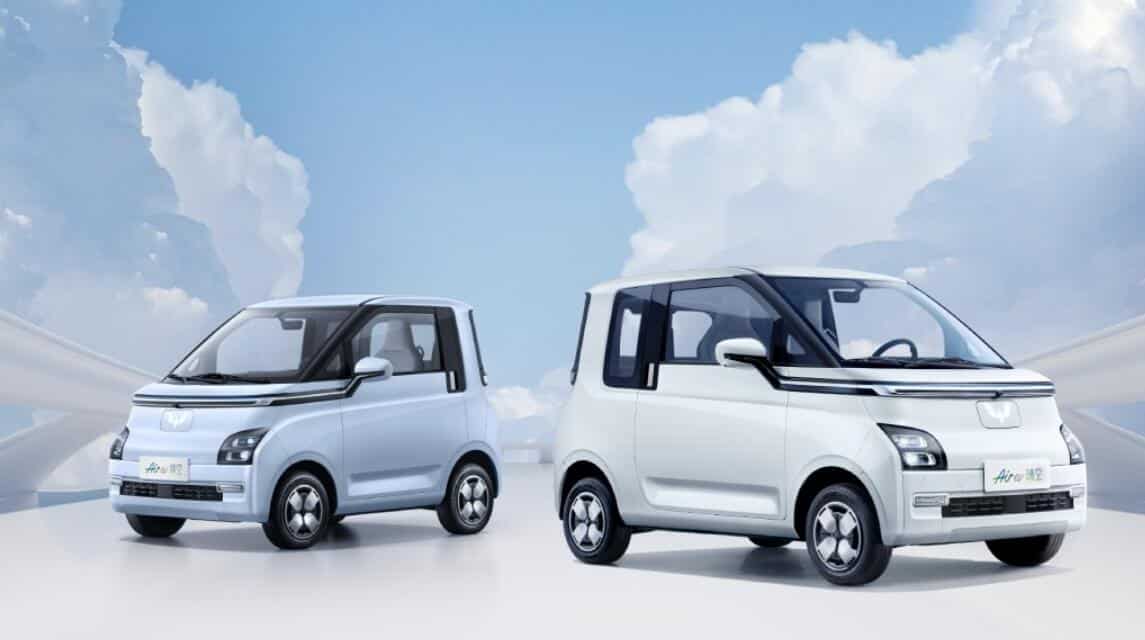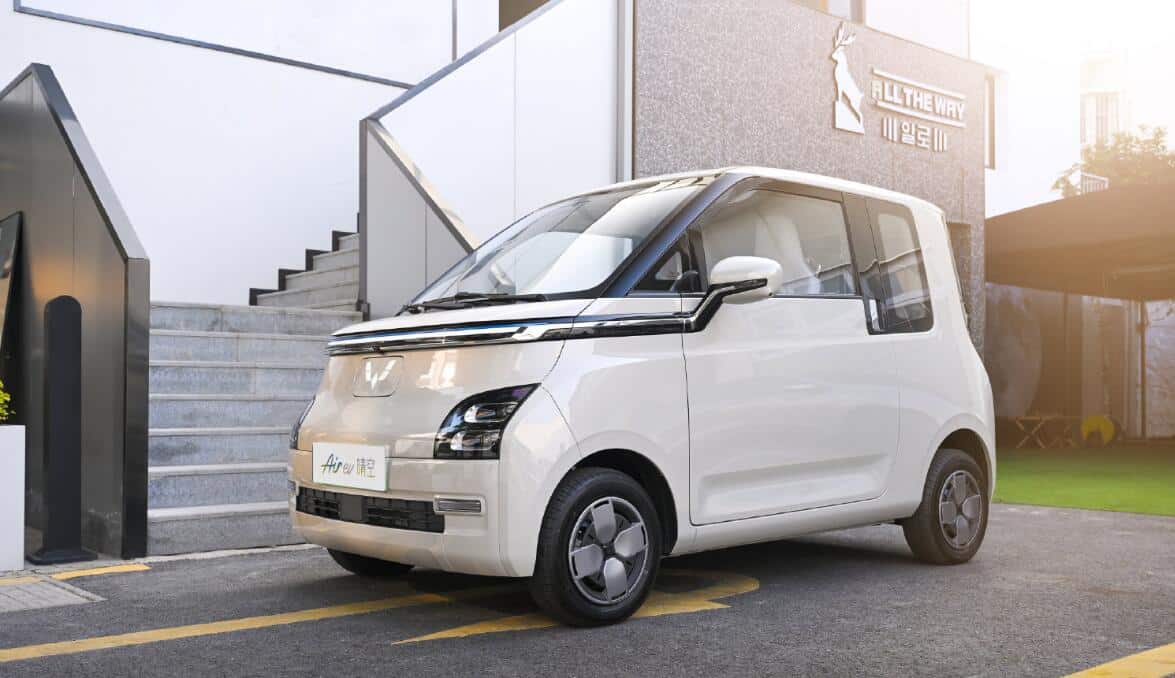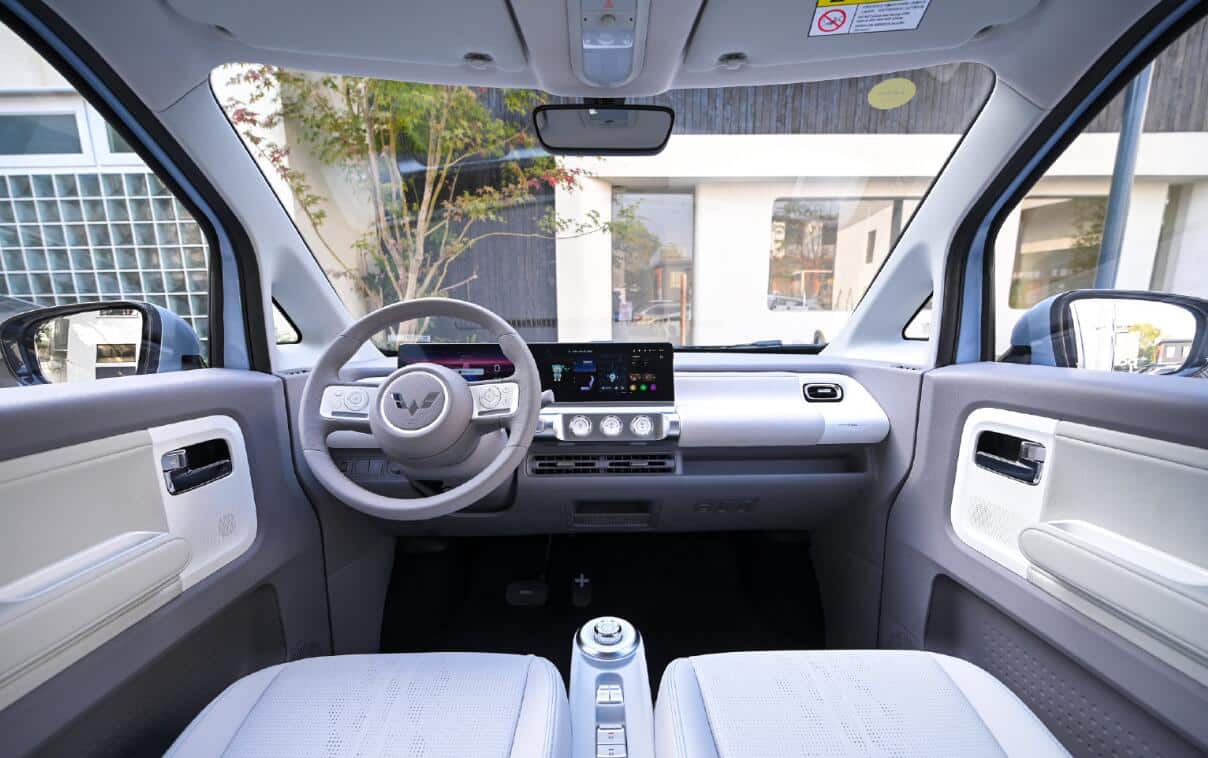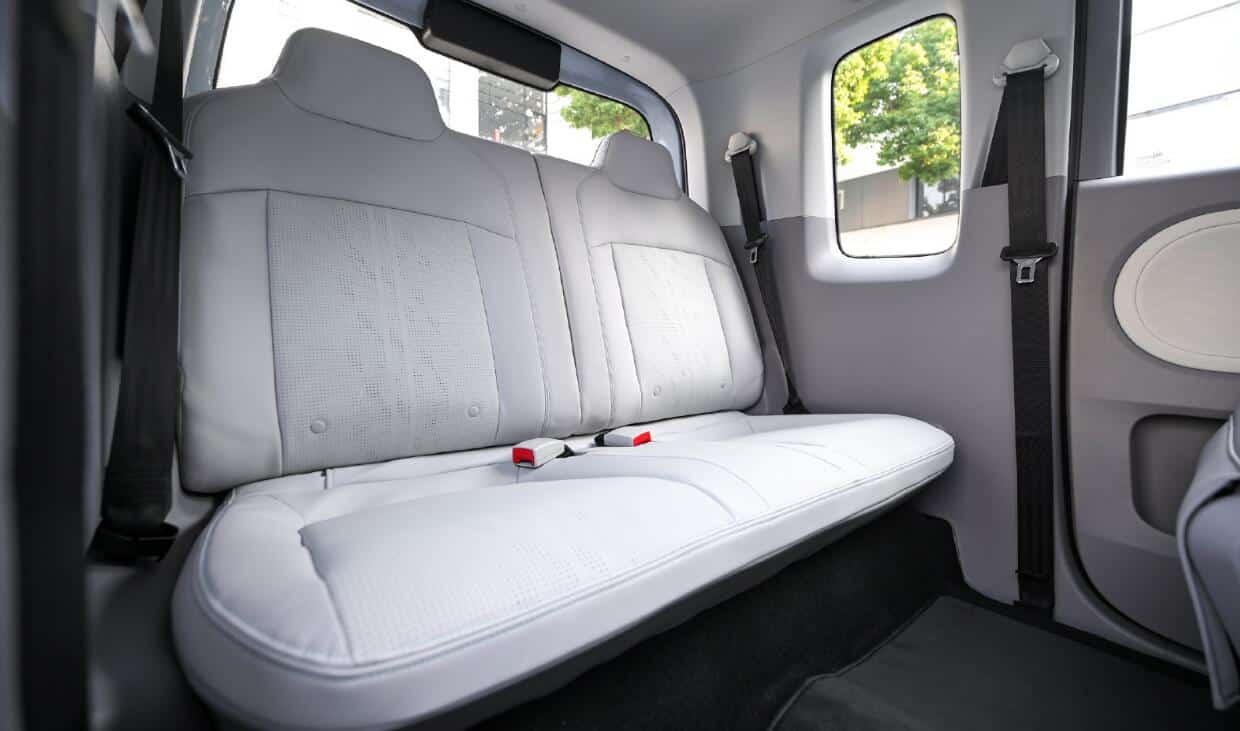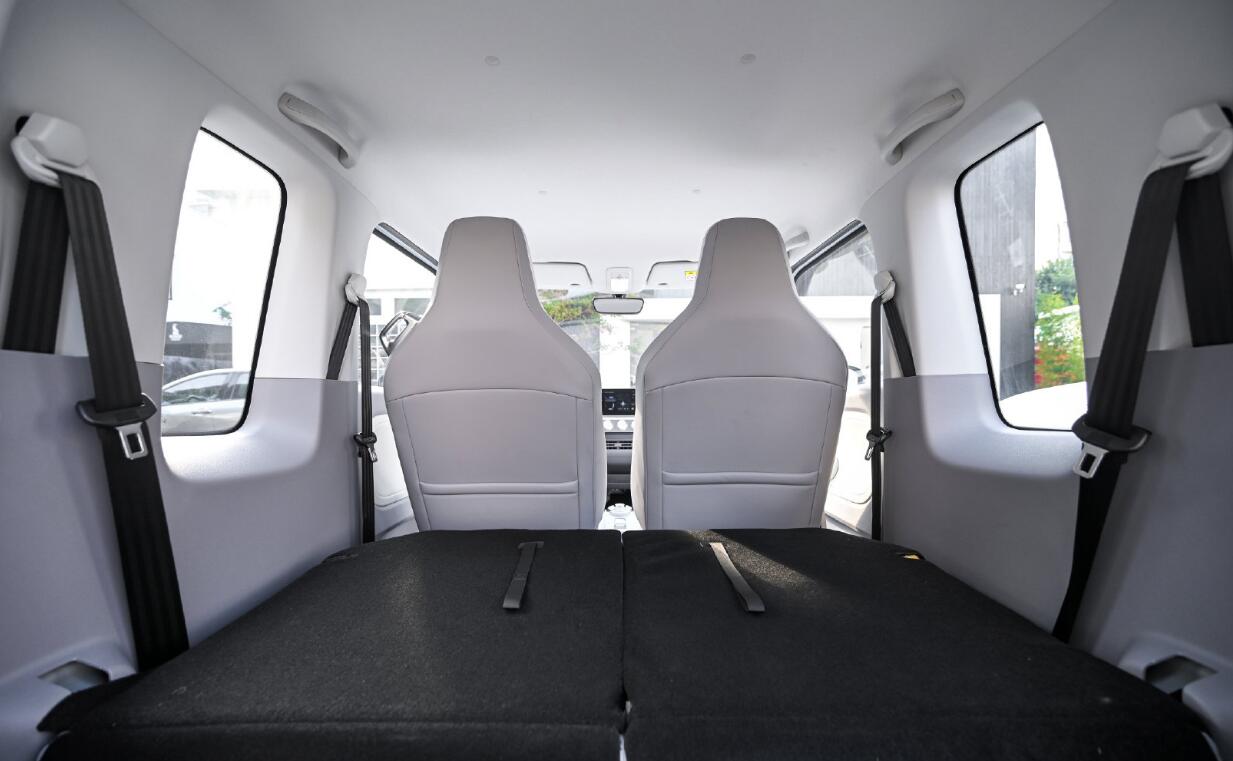The price range for the Wuling Air EV in China is RMB 67,800 ($9,720) to RMB 82,800. The model was previously launched in Indonesia.
(Image credit: SAIC-GM-Wuling)
SAIC-GM-Wuling's new mini electric vehicle, the Air EV, is now available in China, having been first launched in Indonesia in August as the company's first global model.
The Air EV officially went on sale in China on December 12, with a price range of RMB 67,800 ($9,720) to RMB 82,800.
The car is available in two-seat and four-seat versions, and comes in four body colors: white, blue, gray and coffee.
The car's four-seater has a length and width of 2,974 mm, 1,505 mm and 1,631 mm, respectively, and a wheelbase of 2,010 mm.
Its two-seater has a length, width and height of 2,599 mm, 1,505 mm and 1,631 mm, respectively, and a wheelbase of 1,635 mm.
The Wuling Air EV is equipped with a permanent magnet synchronous motor with a maximum power of 30 kW and a maximum torque of 110 Nm for the two-seat version and 50 kW and 140 Nm for the four-seat version.
The car is equipped with a lithium iron phosphate battery pack, with a capacity of 26.7 kWh and 28.4 kWh for the two-seat and four-seat versions, respectively.
The vehicle has a CLTC range of 300 km and a top speed of 100 km per hour.
It is worth noting that the car was first launched in Indonesia, not China.
The Air EV was unveiled in Jakarta, Indonesia on June 1 and launched there on August 11 with a price range of IDR 238,000,000 ($15,190) - IDR 295,000,000.
In addition to the Air EV, SAIC-GM-Wuling currently sells vehicles based on the GSEV (Global Small Electric Vehicle) architecture in China, including the Mini EV, KiWi EV, and Nano EV, all priced below RMB 100,000.
The company was aiming for annual sales of 1 million new energy vehicle (NEV) by 2023, it said in early March.
On August 8, Wuling announced that it had exceeded 1 million cumulative sales of NEVs.
The Mini EV sold 31,982 retail units in China in November, making it the best-selling new-energy sedan that month, according to data released earlier this month by the China Passenger Car Association (CPCA).
